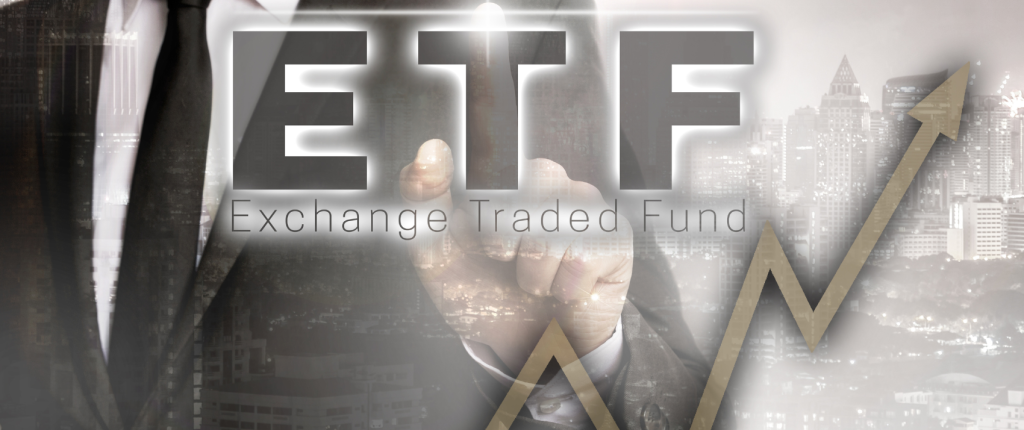Financial Trade-Offs: Unit Trusts vs. ETFs

In this final article in our series of financials trade-offs, investors need to consider, we are looking at the two commonly used vehicles investors use to invest their pooled money as a way to enhance diversification – unit trusts and exchange-traded funds (ETFs).

A unit trust is a type of collective investment scheme where investors purchase units in a fund managed by a professional fund manager. The fund manager actively selects and manages the underlying assets, such as shares, bonds, or other securities, aiming to achieve specific investment objectives. In contrast, an ETF is a type of investment fund that tracks the performance of a specific index, commodity, or sector. ETFs are passively managed and traded on stock exchanges, like an individual share, providing a cost-effective and accessible way to invest.

At their core, unit trusts and ETFs represent the two primary styles of investing: active and passive. Active investing involves a hands-on approach where a fund manager makes decisions about which assets to buy or sell, aiming to outperform the market. Passive investing, on the other hand, seeks to replicate the performance of a specific index or benchmark, aiming for steady and predictable returns. This fundamental difference in management style has a significant impact on the cost, risk, and potential rewards of these investment vehicles.
When it comes to deciding how to invest new capital or diversify your investment portfolio, the choice between unit trusts and exchange-traded funds (ETFs) is a common dilemma for investors. Both investment vehicles offer unique advantages, but they also come with distinct trade-offs. Understanding these differences is essential for making an informed decision about where to allocate your capital.
One of the most significant factors to consider is the cost of investing in a unit trust versus an ETF. Unit trusts typically have higher management fees because they are actively managed by highly skilled investment specialists. This means a fund manager and their team of financial analysts select the underlying investments in the fund, aiming to outperform a benchmark. In contrast, ETFs generally have lower fees as they are passively managed and track an index, such as the S&P 500 or the JSE Top 40 for example. The reduced costs can lead to better net returns, especially over the long term. It is also important to note that actively managed funds have higher transactional costs as there will naturally be more buying and selling of underlying assets compared to the buy-and-hold approach followed by an ETF.
The choice between active and passive management also has implications for risk and return. Unit trusts provide the potential for outperformance through active management since it is argued that a skilled manager may exploit market inefficiencies, which can be advantageous during volatile markets or in niche sectors. On the other hand, ETFs offer consistent market performance by tracking an index. While they won’t outperform the market, they are less likely to underperform significantly.
Liquidity and the ability to trade quickly also vary between the two options. Unit trusts are priced at the end of each trading day, and transactions typically take a few days to settle. This makes them less suitable for investors who want quick access to their funds or aim to capitalise on intraday market movements. ETFs, however, trade on stock exchanges like individual stocks, providing intraday liquidity. This feature is ideal for investors who value flexibility and real-time pricing.
The entry-level investment amount may also differ significantly between unit trusts and ETFs. Unit trusts often require a higher minimum initial investment, making them less accessible to investors with limited capital. ETFs, in contrast, can be purchased in smaller increments, sometimes as little as the price of a single share, which lowers the barrier to entry.
Tax efficiency is another critical consideration. Unit trusts may distribute capital gains and dividends, which could result in tax liabilities even if you don’t sell your units. ETFs tend to be more tax-efficient because they generally don’t distribute capital gains as frequently due to their passive structure.
Both options allow for diversification, but they do so differently. Unit trusts can offer tailored exposure to specific themes, sectors, or geographic areas due to active management. ETFs provide broad diversification by tracking an entire index, which can reduce specific risks but limits the option for customisation.
Investors also need to manage expectations regarding returns. Unit trusts offer the potential for higher returns due to active management but come with a risk of underperformance. ETFs deliver market returns, which means they are unlikely to outperform but offer predictability and stability.

The choice between a unit trust and an ETF ultimately depends on your investment goals, risk tolerance, and preferences. If you prefer the potential for higher returns and are willing to pay for active management, a unit trust may be the better option. If you are looking for a low-cost, tax-efficient, and straightforward way to track market performance, an ETF is likely the better choice. By carefully weighing these factors and aligning your choice with your financial objectives, you can maximise the potential of your investment portfolio.

